Universally Designed for whom? Disability, the Law and Practice of Expanding the “Normal User”
Presenter: Paul Harpur, Senior Lecturer, TC Beirne School of Law, University of Queensland
Oral Presentation by Zoom or Skype from Washington DC
Universal design strives for a world where products, environments, programmes and services are designed to be accessible and usable by all people, to the greatest extent possible. To realize this vision, universal design concepts are the principles which guide the development of standards and guidelines. Importantly universal design does not mean universally accessible or usable. Universal design models and the UN Convention on the Rights of Persons with Disabilities (CRPD) anticipates that some people will not enjoy equal access. Where this occurs, reasonable accommodations/adjustments are mandated by the CRPD and anti-discrimination laws.
This project will report upon the findings of a Fulbright Future Fellowship. The Fulbright includes primary and secondary research and visiting fellowships at Harvard Law School Project on Disabilities and the Burton Blat Institute, Syracuse University from February to the end of May 2020. On my project I am not asking whether access standards are enforced, but trying to understand the way in which decisions of inclusion and universal design are made. This project aims to:
- Examine where certain ranges of abilities are included and excluded from the expanded construct of the normal user for universal design;
- Critically analyse where the expanded construct of normal results in persons with certain impairments not benefiting from universal design; and
- Explore where value judgments and prejudice that go against the CRPD are impacting upon the construction of the expanded normal user for universal design.

Recent Comments